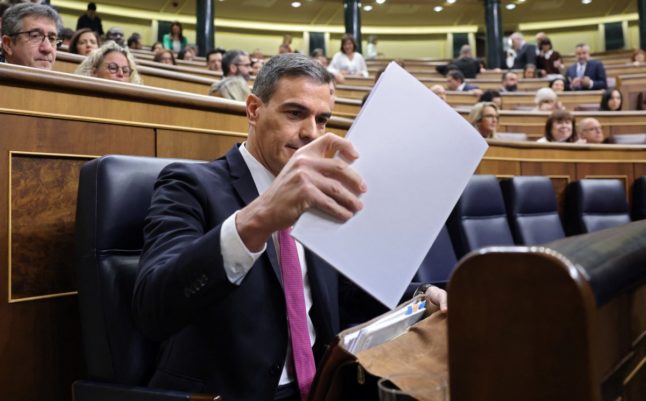Spanish Prime Minister Pedro Sánchez on Wednesday promised to include two standout measures as part of his electoral programme ahead of the July 23rd general elections.
“The proposal that we will include in the electoral campaign will be to go from 16 to 20 weeks of paternity and maternity leave,” he said at talks held at the PSOE headquarters in Madrid.
If at all approved, that’s to say if the Socialists were to win the elections and Sánchez stuck to his word, the leave extension would also apply to parents who adopt.
The proposal would however see new mothers and fathers work part-time during weeks 17 and 20, although no further details have been given yet as to how this would be carried out in practice.
Sánchez increased state-paid paternity leave to 16 weeks during his current term in office in 2021, equalling that of mothers.
According to Spanish Social Security Minister José Luis Escrivá, also present at the gathering, this initial increase of paternity leave has been “extraordinarily positive, not only for mothers and fathers but also for their babies, as they’re nurtured far better when they spend more time with their parents”.
The other ambitious pledge made by Sánchez would see the minimum wage (salario mínimo interprofesional or SMI) increased by ensuring that it always represented 60 percent of the average salary in Spain.
“We want to guarantee it by law, not as a political promise,” the 51-year-old left-wing leader stressed about the fact that they’d look to amend the minimum wage “regardless of the party in power”.
Both Sánchez and Escrivá pointed to the increase in the SMI that their party had implemented during their term in office, which has led to a minimum wage increase of 47 percent up to €1,080 gross per month, around 60 percent of the average salary that Europe advises.
In 2022, the average salary in Spain was €2,086 gross a month according to the National Statistics Institute (INE), which means that a 60 percent fix would represent €1,251 gross a month, an increase of roughly €171 per month.
The Socialist leader also pledged to increase pensions for the country’s 9.07 million pensioners, adding an extra €5 billion to the pot annually.
Sánchez’s promises come after his party’s huge losses in recent local and regional elections and polls suggesting that he will lose the general elections in late July, with a clear shift towards the right among voters.
READ ALSO:



 Please whitelist us to continue reading.
Please whitelist us to continue reading.
Member comments